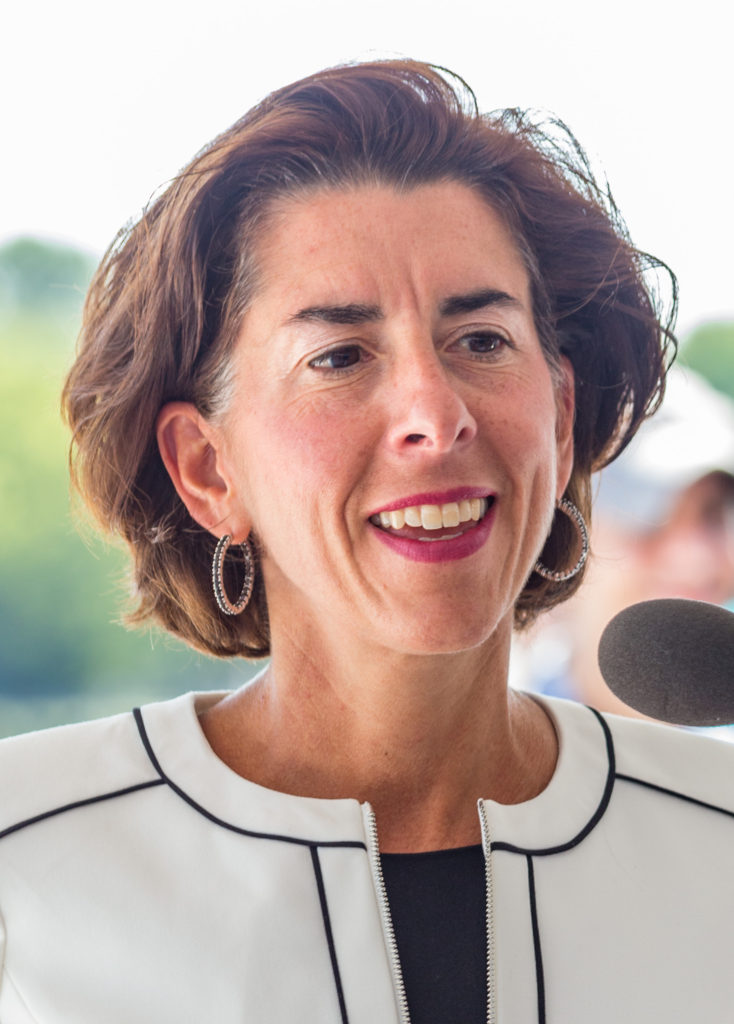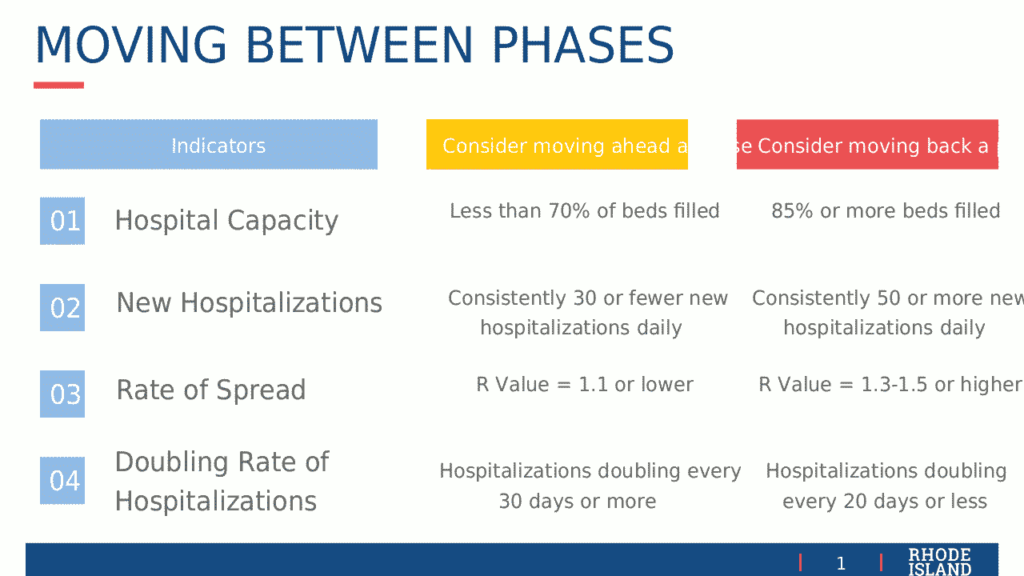
Governor Gina Raimondo and DOH director Dr. Nicole Alexander-Scott gave the COVID press briefing today at 1pm at The Vets.
Rhode Island has 203 new COVID-positive cases. Two-hundred seventy-two people are in the hospital; 63 of those are in the ICU with 41 people on ventilators. Eleven new deaths were reported today, one person in their 60s, four in their 70s, two in their 80s and four in their 90s.
Phase 2 is looking like it will start on or after June 1, the governor said today. She clarified her original comments that gave people hope for phase 2 around Memorial Day, which she noted is coming early this year. Raimondo laid out that there would be a month(ish) in between each phase. Two weeks for each phase, and another two weeks after that to observe the potential infection impact of the phase. “If the fact that we lifted the stay at home order gets us into trouble,” said the governor, “we won’t know until a couple of weeks from now.” She noted it’s the virus setting the goalposts.

Today the governor went over the four metrics her office is using to determine whether the state proceeds into a new phase of the economic reopening or puts more restrictions in place. Her office monitors total hospital capacity, the rate of new hospitalizations, the rate the virus is being spread and the time it takes for the hospitalizations to double. These four factors are what the governor weighs before making a decision.
Hospital beds should be filled at less than 70% capacity, and there should consistently be 30 or fewer new hospitalizations per day. The rate of the virus spread should be closer to one; that is one person infects only one other person. Statistically speaking, infecting even a half person more will cause the governor to consider moving back one phase. Lastly, to move forward with a new phase, the rate of hospitalizations should only double every month or so. A bad trend of this would be if they doubled less than every three weeks or doubled every 20 days, according to the governor’s metrics.
“I fully expect hospitalizations to go up,” says the governor. “As long as it takes more than a month to see a doubling in hospitalizations, we should feel confident that we’re in a good place.” The aim of the game, according to the governor, is ensuring the hospital system can handle infection surges when they arise. She assured reporters today that a month in between phases was the same amount of time every other state was doing it.
Dr. Nicole Alexander-Scott addressed concerns today about the efficacy of the Abbot ID tests used at the Twin River COVID testing site in Lincoln. The FDA recently announced it would be investigating the accuracy of the Abbot ID tests, assessing if accuracy issues are arising from the types of swabs used in the tests or in the material used to transport the tests safely and effectively. Dr. Alexander-Scott said DOH validated the tests when they started using them at test sites in RI, and state health labs confirmed their accuracy. The rate of accuracy was 11%, the same as all tests at all testing sites in RI. The Abbot ID test at Twin River managed to identify at least 3,000 people with COVID-19, and Dr. Alexander-Scott credits it with allowing the state to start contact tracing and isolating people quickly. She also added that a person who tested negative but had symptoms should self-isolate anyway to ensure the virus is not transmitted.
When asked by Motif if the ACI was facing an outbreak in cases like at the Wyatt Center a month ago, Dr. Alexander-Scott said the state had pro-actively assessed the risk of spread. When asked what percentage of inmates and staff had been tested, she said she would get back to us.
Press conferences are no longer given on weekends. The governor’s next press conference is Monday at 1pm.
More Posts by The Author:
These Hallowed Halls: SROs teach kids how to be afraid in school
A Closed Door: The eviction moratorium expired, and people aren’t getting relief fast enough
Meeting of Minds: RI Theater Coalition hosts its first meeting to address sexual impropriety
Lens Flair: RI street photographers see the city through a different view
Epic Theatre Company AD Kevin Broccoli Accused of Sexual Impropriety: Epic to freeze all current and future performances



